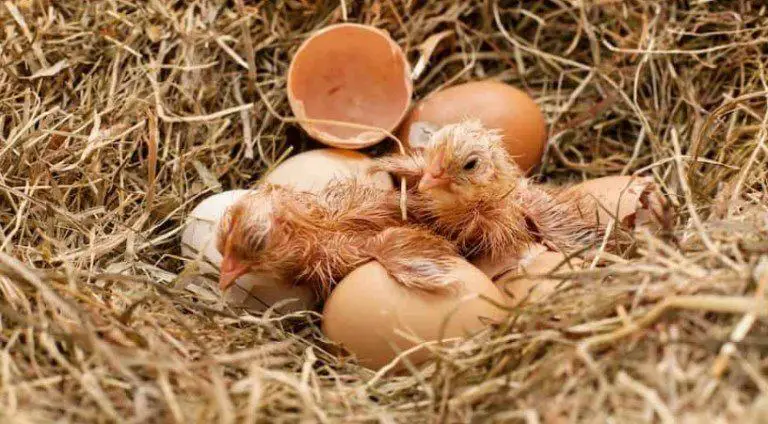No products in the cart.
Chicken
Treats For Baby Chicks: When, What & How Much?
Giving treats for baby chicks can vary their diets, which helps them have a happy and healthy life. However, too much of a good thing can be bad for a baby chick. Hence, you should keep in mind that treats are not a balanced diet and be sure to grasp firmly the information below.

*This post may have affiliate links, which means I may receive commissions if you choose to purchase through links I provide (at no extra cost to you). As an Amazon Associate I earn from qualifying purchases. Please read my disclaimer for additional details.
When to give treats for baby chicks?
After hatching 2 weeks from the eggs, baby chicks can start having treats. For the first 2 weeks, therefore, it is better to give them some time to learn what their real food looks, tastes, and smells like. After that, they can be given a small number of edible treats and feed.
Baby chicks are tiny, hence they do not have the capacity to process complex treats like the way their adult counterparts do.
More importantly, treats for newly hatched chicks must ensure nutrition for their health, development, and ability to defend against illness, not just eat-for-fun.
Read our related article on How to Hatch a Chick Without an Incubator. Hatching eggs on your own can be quite a task, but this step-by-step guide can help!
How much treats should be given for chicks?
Treats should be given no more than 5% of a normal chick’s diet, which means a maximum of 2 tablespoons of treat every few days.
Bear in mind that everything has to be in moderation. When chicks eat too much treats, they are not eating their feed which is the main source of nutrition.
Excessive treats can be harmful to their stunt growth, shorten their lifespan, interfere with egg production, as well as increase the risk of heart-related diseases and other unwanted behavior.
Treats should account for no more than 10% of their daily calories. This is a rule of thumb for your chicks and the adults as well. It is also advised to clean up any treat if your baby chicks have not eaten within 15 minutes.
Read More: How to Care for Quail Babies. Caring for chicks can be intimidating, but it’s easier than you think! We share what you need to know about caring for quail chicks.
Treats for baby chicks
Treats for babies look relatively familiar to treats for their adult counterparts. They can consume a variety of foods if well cooked and stored properly. Remember that the smaller body sizes they are, the smaller pieces they need. Consequently, you should cut up their treats into appropriately sized pieces.
Chicken feed is actually healthy for chicks to eat as long as it is otherwise safe for consumption. They tend to eat about anything you give them, so never feed your baby chicks leftover, meat, or any food that you would not eat yourself.
1. Egg
Hard-boiled eggs are considered as the basis of any good baby chicks treats. Eggs contain a large part of protein which is excellent for growing babies. Although hard-boiled eggs are quite easy for chicks to peck at, it is better to mash it up.
Plain scrambled eggs are also good for them. Don’t forget to minimize or eliminate any seasoning or oil used to cook the eggs.
Read our related article on Everything You Need to Know About Chicken Eggs. This guide covers incubation, fertilization, raising chicks, and MORE!
2. Worms, bugs
You can also collect worms or other insects from your garden for those little chickens.
Despite more tasks required, this hands-on activity can be very fun to involve children in the care of your poultry. It is a pest control and treats for newly hatched chicks all in one package.
3. Crickets
There is approximately double the amount of protein in crickets compared to the other insects. Chickens of all ages love crickets, especially the young ones. Crickets are the crawly favorites of all time and chicks definitely adore chasing crickets as much as the reward.
Read More: What Do Baby Geese Look Like When They Hatch? The ultimate guide to all-things goslings!
4. Fruit and veggie
Chicks enjoy eating fruits and vegetables. It is absolutely a brilliant way to keep your chicks hydrated, especially on the boiling days.
It is fine to throw softer items in whole and allow the chicks to peck, but tougher items need to be cut up into small pieces. In veggies case, you can either grate or spiralize them.
You should read: Top 6 Best Heated Chicken Waterer
Can chicks have treats without grit?
Grit consists of pieces of crushed stones or tiny pebbles. It is used as a supplement to chicken’s diet that can help break down hard foods in chickens’ gizzard. There are two kinds of grit sold available, regular grit for adult chickens and another for baby chicks called “chick grit”.
Grit is an important ingredient if you are feeding treats for your young birds. Therefore, as soon as your chick begins eating anything besides their normal chick feed, they should be offered grit.
The hen can pick it up for her babies naturally when scratching on the floor. However, for brooder chicks, they totally rely on you to provide grit.
Read More: Can Chickens Eat Tomatoes From the Garden? Tomatoes are good for us, but are they good for chickens? Read this before feeding your flock tomatoes!
Conclusion
Feeding treats for baby chicks is quite straight forward. The adequate amount of treats can make both your babies and you happy. Nonetheless, the wrong and excess treats can be harmful to the health, growth of your babies. So, read in detail all the information above can help your tasks become easier.